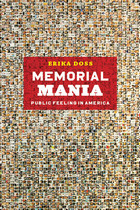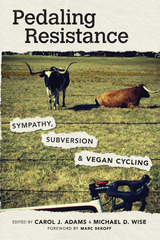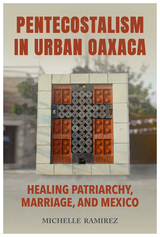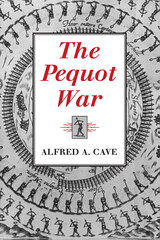
The potential for creating and using biological weapons to wreak havoc is an urgent concern not just in America, but worldwide. In fact, many security experts believe that the next act of widespread terrorism will likely come from a weapon of biochemical means.
In Anthrax: Bioterror as Fact and Fantasy, Philipp Sarasin explores the real threats of biological weapons--in contrast to the idea of biological substances as nebulous agents of terror--by analyzing the famous anthrax scares that occurred in the United States in 2001. Basing his analysis on government documents and media coverage between the events of September 11, 2001, and the beginning of the Iraq War in March 2003, he shows that the anthrax letters became the necessary fantasy-link between the 9/11 attacks and Saddam Hussein's "weapons of mass destruction." While many bioterrorism experts agree that it would be difficult to use anthrax effectively as a weapon in a large-scale attack, the anthrax scares that occurred in the wake of the September 11 terrorist attacks amplified the American public's fear and uncertainty about what might come next. In effect, these incidents infected the American psyche and created an increased sense of vulnerability that shaped the public's understanding of the War on Terror.
Sarasin, in offering a European's view of the U.S. reaction to the anthrax scare, argues that while threats of bioterrorism are real, they are disproportionate to the fantasmal fears and illusions that now permeate American politics and culture. In short, fear of bioterror has contaminated modern American life.

The case of the six Jesuits and two women murdered at Central American University (UCA) in San Salvador on November 16, 1989, has come to signify, by extension, a class-action suit on behalf of the 70,000 people tortured and executed over the course of a decade by the Salvadoran Armed Forces, with the complicity of the government. The identification of all those responsible for the Jesuit murders—the intellectual authors as well as the triggermen—would provide a first step toward purging and reforming a system that has made these kinds of crimes possible. This report by the Lawyers Committee for Human Rights, which served as legal counsel to the Jesuits since December 1989, documents the story of the Jesuit murders in the most comprehensive history and analysis to date.
Martha Doggett establishes the background leading up to the murders—the preceding years of human rights abuses and of political distortions promulgated about the Jesuits. She then sifts through the evidence of the crime, scrutinizes the subsequent efforts at cover-up, analyzes the process of the trial itself, and identifies the high-level officials thought to be ultimately responsible for ordering and concealing the truth about the murders. She concludes that a number ofcivilians as well as military paraticlipated and that the decision was made some time before the night of the actual murders. Drawing on primary and journalistic sources, investigative reports, U.S. and Salvadoran government documents, and interviews conducted by the Lawyers Committee for Human Rights and other organizations, Doggett traces the military's repeated obstruction of justice and the ambivalent responses by U.S. officials courting political expediency. She observes the effects of international protests (including the report by U.S. Congressman Joe Moakley) and outlines the limitations inherent in El Salvador's legal system.
Bringing the chronicle up to the present, this volume includes the first published English-language translation of the portion of the Truth Commission report dealing with the Jesuits' case, an analysis of the Truth Commission's conclusions, and reactions to the amnesty and release from prison of all persons convicted for the crime. Appendixes include chronologies of the case and of attacks on El Salvador's Jesuits; lists of the names of all the persons figuring in the case and profiles of the defendants; the report of the Lawyers Committee's trial observer; and a list of previous publications on the case by the Lawyers Committee and UCA, as well as reports of trial observers from other organizations.

In the past few decades, thousands of new memorials to executed witches, victims of terrorism, and dead astronauts, along with those that pay tribute to civil rights, organ donors, and the end of Communism have dotted the American landscape. Equally ubiquitous, though until now less the subject of serious inquiry, are temporary memorials: spontaneous offerings of flowers and candles that materialize at sites of tragic and traumatic death. In Memorial Mania, Erika Doss argues that these memorials underscore our obsession with issues of memory and history, and the urgent desire to express—and claim—those issues in visibly public contexts.
Doss shows how this desire to memorialize the past disposes itself to individual anniversaries and personal grievances, to stories of tragedy and trauma, and to the social and political agendas of diverse numbers of Americans. By offering a framework for understanding these sites, Doss engages the larger issues behind our culture of commemoration. Driven by heated struggles over identity and the politics of representation, Memorial Mania is a testament to the fevered pitch of public feelings in America today.

The result of extensive research among local communities, and drawing on survey and interview evidence, Northern Ireland After the Good Friday Agreement sets this issue within the context of past conflict and the continuing sectarian violence of the present. In particular it presents the views of ordinary people about their personal experiences of political violence and the impact it has had upon their lives.
Moreover, it shows how the Troubles have affected the young people of the region, and looks at the problems facing a society coming out of a protracted period of low-intensity conflict.


Keith Bolender brings to bear the enormous impact that terrorism has had on Cuba’s civilian population, with over 1,000 documented incidents resulting in more than 3,000 deaths and 2,000 injuries. Bolender allows the victims to articulate the atrocities the Cuban people have suffered - which largely originate from Cuban counter-revolutionaries based in the US, often with the active help of the CIA.
Voices From The Other Side includes first-person interviews with more than 75 Cuban citizens who have been victims of these terrorist acts, or have had family members or close friends die from the attacks. It is a unique resource for activists, journalists and students interested in Cuba's torrid relationship with the US.
READERS
Browse our collection.
PUBLISHERS
See BiblioVault's publisher services.
STUDENT SERVICES
Files for college accessibility offices.
UChicago Accessibility Resources
home | accessibility | search | about | contact us
BiblioVault ® 2001 - 2024
The University of Chicago Press









